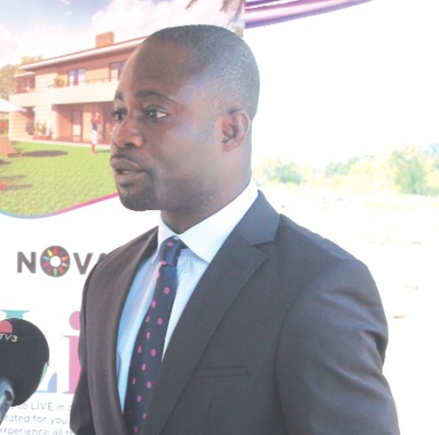
Release outstanding payments to sustain NHIS - Minority urges Finance Minister
The Minority in Parliament has directed the Minister of Finance to release and transfer all outstanding payments to the National Health Insurance Fund by the close of the week to prevent the scheme from being imperilled due to lack of funds.
It also urged the Finance Minister to fully comply with the provisions of the National Health Insurance Act (Act 852) to curb the current bankruptcy facing the scheme. It said the gross and wanton neglect of the NHIS had driven the scheme into a precarious financial state of “comatose”, requiring intensive care services to save it from impending and inevitable collapse.
In a statement, the Ranking Member on the Health Committee of Parliament, Kwabena Mintah Akandoh, cited an interview the Chief Executive Officer (CEO) of the National Health Insurance Authority (NHIA), Dr Dacosta Aboagye, granted an Accra-based Joy FM in which he said since his appointment “we are still waiting for them [Ministry of Finance] to do releases to the authority”.
“This is quite worrying considering the fact that in that same interview, he kept saying that the NHIA was in a robust financial position. How can the NHIA be in a robust financial position if it had not received any releases since his appointment on February 28, 2024?” it quizzed.
Bankrupt
In the view of Mr Akando, the NHIA was currently bankrupt because it had not received any releases from the Ministry of Finance this year. “In addition, our checks at the Bank of Ghana show that the National Health Insurance Fund has less than GH₵1.0 million. This is a fund that is bankrupt, to say the least.
“Although the members of the Bawumia-led economic management team, while in opposition, made several promises to improve on the NHIS, they have at every turn put impediments previously unknown to the scheme since they assumed the reins of power,” he said.
The Member of Parliament (MP) for Juaboso said the first major blow to hit the NHIS was the sponsoring of the Earmarked Funds Capping and Realignment Act in 2017 by the Akufo-Addo’s Cabinet.
Diverting funds
That statute, he said, allowed the government to operationalise its ulterior motive of diverting critical funds meant for the NHIS into the consolidated fund for projects and programmes not approved by Parliament such as the National Cathedral Project, which had now become the most expensive hole in the world.
“The operation of the Earmarked Funds Capping and Realignment Act has denied the NHIF payments of over GH₵6.0 billion,” he said.
Payments
“These payments could have gone a long way to improve on the health of the fund and help expand its services to critical treatments such as dialysis and cancer care, which currently are not covered by the scheme,” he said.
Mr Akandoh explained that per the National Health Insurance Act (Act 852), Section 52(1), "The Minister responsible for Finance shall, within thirty days after collection of the levy, cause the levy to be paid directly into the fund and furnish the Minister responsible for Health and the Authority with evidence of the payment."
“However, in flagrant disregard of this statute, the Minister of Finance under the Bawumia-led economic management team places very little priority on the NHIS. While the Finance Ministry collects the National Health Insurance Levy (NHIL) on almost all goods and services monthly as prescribed by law, it habitually delays even the meagre portions it has allocated of these receipts into the National Health Insurance Fund, leading to extended periods during which private health service providers decide not to attend to NHIS cardholders,” he said.
The MP indicated that in a recent shameless charade to deceive Ghanaians, the Minister of Finance, after five months of not transferring a cedi to the NHIS, issued a letter directing the Controller and Accountant General to transfer GH₵2.4 billion to the NHIF.
Empty gesture
“This empty gesture, with no actual intention to make payments, was nothing less than gross official deception and has left the scheme in a state of insolvency,” he said.
Childhood diseases
The underfunding of the scheme, Mr Akandoh said, had the potential to trigger epidemics such as measles and cerebrospinal meningitis as witnessed in 2022 and 2023, leading to increased morbidity and mortality among Ghanaian residents.
If the current situation persisted with the government's refusal to fund the NHIS, 2024 might see a resurgence of childhood diseases previously eradicated in Ghana, he said, adding that “this outcome must be avoided at all costs”.
